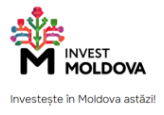
Every tenth cigarette in Moldova is sold illegally, which raises serious concerns for both the authorities and the industry
The share of illegal cigarettes on the Moldovan market in 2023 was about 10%, up 3.8 percentage points relative to 2022. In an interview with Moldovan journalists at the Technovation conference in October, Nicolas Otte - Director Illicit Trade Prevention for Philip Morris International - emphasized that “such figures are unacceptable in any country and the problem requires immediate action”. Nicolas Otte noted that the situation in Europe as a whole is also deteriorating. “According to the latest data, more than 52 billion cigarettes are sold illegally in Europe every year. And Moldova alone accounts for 200 million - a huge figure for a small country,” he emphasized. He believes that one of the main reasons for such growth of the illegal market in Moldova and other countries is inefficient regulation and significant differences in tax policies. Nicolas Otte pointed out that behind the illegal trade are criminal networks that take advantage of imperfect laws. “Criminal networks grow with the market. The more they earn, the more they invest in growing their illegal business. These are real investments and they work on the same principles as the legal sector,” Nicolas Otte emphasized. According to him, measures are already being taken in neighboring countries to address this problem. As positive examples, Nicolas Otte cited Romania, where in 2023 the consumption of illegal cigarettes amounted to 5.8%, and Poland where the share of illegal cigarettes on the market is only 3.6%. Philip Morris International's Director for Illicit Trade Prevention noted that these countries have implemented comprehensive tobacco tracking systems (Track & Trace) and strengthened measures to combat illicit production. In Poland, for example, where consumption of illicit cigarettes was more than 20 percent about 10 years ago, strict controls on the movement of raw materials for tobacco production have been introduced and penalties for violators have been increased. This has resulted in a sharp decline in illegal factories, which are forced to sell their equipment to neighboring markets that do not yet have such strict measures against illegal trade. Speaking about Moldova, Nicolas Otte considers it advisable to adopt the examples of other countries, to take into account the best practices. “For example, the Track & Trace system, which has been implemented in the EU and Great Britain, has already demonstrated its efficiency in reducing the share of illegal goods on the market,” he said. At the same time, in his interview, Nicolas Otte explained why exactly the British system could be effective for Moldova. “After leaving the EU, the UK adapted the traceability system, making it simpler and more flexible than the one used in the EU. The British model involves a single data depository, which greatly simplifies the process of controlling the movement of products. In the EU, the system is divided into several levels, with multiple depositories, which makes it more complex,” Nicolas Otte explained. Such a simplified approach could be useful for Moldova, which is in the process of European integration but is not yet a member of the EU. “Moldova could adopt elements of the British system as a preparatory step for future integration into European mechanisms. This would allow further minimizing changes and faster adaptation to European standards when the country becomes an EU member,” he added. In addition, the UK system offers flexibility in terms of interoperability with European tracking codes. “In the UK, a code assigned in the EU can be accepted and used, making it easier to import products. In the EU, by contrast, each state code is unique and only valid within a specific country. For Moldova, as a country that actively imports products, the British system could be much more convenient and economically beneficial,” emphasized Nicolas Otte. // 24.10.2024 – InfoMarket.







